
IST, configured as the duo of double bassist Simon H. Fell and cellist/percussionist Mark Wastell, performing a virtual quartet at London's Cafe OTO, using using pre-recorded fragments of solo work from late guitarist Derek Bailey and tap dancer Will Gaines, combined with sections of silence of unforeseeable length, and then combined with the live musicians; amazing.
Out of Stock
Quantity in Basket: None
Log In to use our Wish List
Shipping Weight: 3.00 units
Sample The Album:
Simon H. Fell-double bass
Mark Wastell-violoncello, percussion
Derek Bailey-(virtual) guitar
Will Gaines-(virtual) tapdance
Click an artist name above to see in-stock items for that artist.
UPC: 5902249002669
Label: Confront
Catalog ID: core 12
Squidco Product Code: 28674
Format: CD
Condition: New
Released: 2020
Country: UK
Packaging: Cardboard Gatefold 3 Panels
Recorded at Cafe OTO, in Dalston, London, UK, on March 2nd, 2018, by Shaun Crook.
"An in concert, Virtual Company performance from IST (on this occasion the duo of Simon H. Fell and Mark Wastell due to the snow-bound absence of Rhodri Davies) together with pre-recorded fragments of Derek Bailey and Will Gaines.
IST's Virtual Company calls on 'the powers of improvisation' (D. Bailey) to interface with the two musicians of IST with dozens of musical fragments drawn from both Bailey and Gaines performing solo. These are combined with sections of silence of unforeseeable length, and then combined with each other and the live musicians, all by means of random algorithms which will ensure that each performance will be both unpredictable and unrepeatable.
IST, Derek and Will performed together regularly in the later half of the 1990's and early 2000's - Derek curated various Company events in London, Marseille and New York which sometime featured this group exclusively and, on occasions, other musicians. The quintet concerts from Marseille in 1999 (although performed under the short-lived group name cavanoconner) were eventually released as a double cd on Incus, Company In Marseille (Incus 44/45).
To add to this crucial document, Confront Recordings released Derek Bailey And Company - Klinker, another double cd set, recorded on a hot and steamy night in August 2000 at The Klinker in London and which featured the quartet of Bailey, Gaines, Fell and Wastell."-Confront
Artist Biographies
• Show Bio for Simon H. Fell Simon H. Fell (b. Dewsbury, Yorkshire, 13 January 1959) is a bassist and composer; he is primarily known for his work as a free improviser and the composer of ambitiously complex post-serialist works. Fell began playing double bass in 1973. From 1978 to 1981 he read English Literature at Fitzwilliam College of Cambridge University,[1] an interest that led to ties to many of the poets associated with the Cambridge scene (a later work, Music for 10(0), involves settings of texts by the poet/music journalist/provocateur Ben Watson). Fell's most notable early group was a group with drummer Paul Hession and saxophonist Alan Wilkinson, a free-jazz trio that was exceedingly fast and furious even by the standards of that genre. Their work was primarily released as cassettes and CDs on Fell's label Bruce's Fingers, including Bogey's and the group's only studio album, foom! foom! Their most sonically extreme statement, however, was the grainily recorded The Horrors of Darmstadt (Shock). (Its title is a sarcastic quotation from a BBC announcer concerning the avant-garde Darmstadt School of composers.) Other groups in which Fell is or was a member include the free jazz trio Badland (led by saxophonist Simon Rose; initially the drummer was Mark Sanders, with Steve Noble subsequently taking over the role), the improvising string+percussion ensemble ZFP (with Carlos Zingaro, Marcio Mattos and Mark Sanders), and SFQ, a quartet/quintet with changing membership, though clarinettist Alex Ward has been a constant. (Fell's 2001 version of his 70-minute SFQ composition Thirteen Rectangles was broadcast twice by the BBC and subsequently nominated for the 'new work' award in the 2002 BBC Jazz Awards.) In sharp contrast to the uproar of Hession/Wilkinson/Fell, the trio IST (with Rhodri Davies and Mark Wastell) was one of the seminal groups in the development of the ultra-quiet aesthetic now generally called "EAI" or "electroacoustic improvisation". Fell has also performed in many other ensembles, including the London Improvisers Orchestra and Derek Bailey's Company Week. Fell's major sequence of compositions is titled Compilation (to date, four such projects have been issued). Despite the governing title, these are not collections of previous material but new, large-scale works. The musical language makes overt use of serialist procedures (such as tone rows, retrograde structures, &c), as well as many other techniques: extensive studio layering, overdubbing and reordering of material (so that seemingly "live" performances may be the result of carefully edited-together improvisations and/or notated material), and use of aleatoric techniques to "degrade" or distort precomposed structures into new shapes. Free improvisation, rock and jazz all form key parts of the musical language; one section of Compilation IV even includes a simultaneous hommage to Karlheinz Stockhausen and Henry Mancini. The cast of musicians drawn on for these pieces usually includes a mix of classically trained players, jazzers and free improvising musicians, as well as wild cards like the noise guitarist Stefan Jaworzyn. While virtuoso players such as Evan Parker and John Butcher are essential to the projects, Fell often deliberately makes use of amateur or student musicians, too, not as a makeshift but as an intentionally democratizing and less predictable element. ^ Hide Bio for Simon H. Fell • Show Bio for Mark Wastell "Mark Wastell Born 1968; cello. Much of Mark Wastell's relationship with his chosen instrument is concentrated on the tactile, textural and sonic possibilities of both violoncello and bow. He is increasingly interested in working with extreme elements drawn from frequency, timbre and pitch. His early activity was consciously and subconsciously influenced by a variety of improvising musicians including John Stevens, Barry Guy, Phil Durrant and John Russell. Subsequent exposure to contemporary composers lead to a greater understanding and appreciation of the works written for strings by Feldman, Cage, Nono, Lachenmann and Sciarrino. The use of live electronics and music concrete by Tudor, Parmegiani, Xenakis and others was another important early influence. Wastell's current instrumental material primarily focuses on using abstract principles of space and texture - encompassing elements of new London silence, pro-instrument minimalism, new complexity and electro-acoustics. Because of the very nature of his chosen instrument, he tends to favour 'chamber' style ensembles and is a member of a number of regular groups: Mark Wastell has also performed with many other leading musicians including John Zorn, Keith Rowe, Peter Kowald, Hugh Davies, Roger Turner, Veryan Weston, Lol Coxhill, Mark Sanders, Axel Dorner, Hans Koch, Phil Minton, Max Eastley and Steve Beresford. As a soloist he has played at the Micro-classical Festival (London 1996), LMC Festival (London 2000) and the Huddersfield Contemporary Music Festival (2000). He has travelled extensively with various groups, performing on tour and at festivals in the USA, France, Spain, Italy, Germany, Sweden, Denmark and Greece. Other work includes the launch in 1996 of his own record label, Confront Recordings. Wastell is also joint co-ordinator of the concert venue All Angels, together with Rhodri Davies." ^ Hide Bio for Mark Wastell • Show Bio for Derek Bailey "Derek Bailey (29 January 1930 - 25 December 2005) was an English avant-garde guitarist and leading figure in the free improvisation movement. Bailey was born in Sheffield, England. A third-generation musician, he began playing the guitar at the age of ten, initially studying music with his teacher and Sheffield City organist C. H. C. Biltcliffe, an experience that he did not enjoy, and guitar with his uncle George Wing and John Duarte. As an adult he worked as a guitarist and session musician in clubs, radio, dance hall bands, and so on, playing with many performers including Morecambe and Wise, Gracie Fields, Bob Monkhouse and Kathy Kirby, and on television programs such as Opportunity Knocks. Bailey's earliest foray into 'what could be called free improvised music' was in 1953 with two other guitarists in their shared flat in Glasgow. He was also part of a Sheffield-based trio founded in 1963 with Tony Oxley and Gavin Bryars called "Joseph Holbrooke" (named after the composer, whose work they never actually played). Although originally performing relatively "conventional" modal, harmonic jazz this group became increasingly free in direction. Bailey moved to London in 1966, frequenting the Little Theatre Club run by drummer John Stevens. Here he met many other like-minded musicians, such as saxophonist Evan Parker, trumpet player Kenny Wheeler and double bass player Dave Holland. These players often collaborated under the umbrella name of the Spontaneous Music Ensemble, recording the seminal album Karyobin for Island Records in 1968. In this year Bailey also formed the Music Improvisation Company with Parker, percussionist Jamie Muir and Hugh Davies on homemade electronics, a project that continued until 1971. He was also a member of the Jazz Composer's Orchestra and Iskra 1903, a trio with double-bass player Barry Guy and tromboneist Paul Rutherford that was named after a newspaper published by the Russian revolutionary Vladimir Lenin. In 1970, Bailey founded the record label Incus with Tony Oxley, Evan Parker and Michael Walters. It proved influential as the first musician-owned independent label in the UK. Oxley and Walters left early on; Parker and Bailey continued as co-directors until the mid-1980s, when friction between the men led to Parker's departure. Bailey continued the label with his partner Karen Brookman until his death in 2005[citation needed]. Along with a number of other musicians, Bailey was a co-founder of Musics magazine in 1975. This was described as "an impromental experivisation arts magazine" and circulated through a network of like-minded record shops, arguably becoming one of the most significant jazz publications of the second half of the 1970s, and instrumental in the foundation of the London Musicians Collective. 1976 saw Bailey instigate Company, an ever-changing collection of like-minded improvisors, which at various times has included Anthony Braxton, Tristan Honsinger, Misha Mengelberg, Lol Coxhill, Fred Frith, Steve Beresford, Steve Lacy, Johnny Dyani, Leo Smith, Han Bennink, Eugene Chadbourne, Henry Kaiser, John Zorn, Buckethead and many others. Company Week, an annual week-long free improvisational festival organised by Bailey, ran until 1994. In 1980, he wrote the book Improvisation: Its Nature and Practice. This was adapted by UK's Channel 4 into a four-part TV series in the early '90s, edited and narrated by Bailey. Bailey died in London on Christmas Day, 2005. He had been suffering from motor neurone disease." ^ Hide Bio for Derek Bailey • Show Bio for Will Gaines Will Gaines bebop rhythm tap dancer who became an international ambassador to tap, was born in Baltimore, Maryland and raised in Detroit, Michigan. At the age of twenty, he saw the Duke Ellington and Count Basie orchestras, master swing orchestra, but was most impressed with the new bebop style of Dizzy Gillespie. Upon seeing the young bebop rhythm tap virtuoso Teddy Hale dance, he dedicated himself to performing in the improvisational bebop style of rhythm tap. In the 1950s Gaines worked with such jazz greats as Lucky Thompson, Kenny Burrell, Tommy Flanagan, and Sonny Stitt at New York's Apollo Theatre. In 1957 he joined Cab Calloway's orchestra and Martha Ray's Night Club in Miami, and also danced in Las Vegas and Washington, D.C. for President Dwight D. Eisenhower. He became a well-respected and expensive opening act commanding $500 a night, which was quite a step up from the $65 a week he earned when he started. On the road again, he opened at the 500 Club in Atlantic City, and went on to Toronto, Canada and Buffalo, New York. He arrived in London in July of 1963, appearing at the Pigille and Ronnie Scott's clubs, and in 1964 at the Palladium with Norman Vaughan, Tommy Cooper, and the Jack Parnell Orchestra. He appeared at Royal Festival Hall as well as in festivals in Glasgow, Edinburgh, Bracknell, and Birmingham. Like jazz tap dancer and choreographer Clarence "Buddy" Bradley who migrated to London in the 1930s, Gaines decided to make London his home, appearing at numerous venues, from concerts halls to countless street appearances alongside major names of British jazz, as well as many from the classical musical world. He was the first American jazz hoofer to perform at the Royal Opera House in Covent Garden. In 1983, Gaines appeared in the televised broadcast Masters of Tap with tap maestros Charles Honi Coles and Chuck Green, which was recorded at London's Riverside Studios. In 2005, at the age of nearly eighty, Gaines was a featured veteran performer in Cross Currents: Turned On Tap at the Queen Elizabeth Hall at South Bank Centre in London, in which he performed with English, Irish, and American tap dancers, and received superb critical reviews for his life-long career as a rhythm tap dancer. Gaines continues to live in London, where for over four decades he has taught and performed, and is regarded as one of America's ambassadors of jazz tap dance." ^ Hide Bio for Will Gaines
• his compositions for The London Improvisers' Orchestra (Papers, Happy Families, Kln Klang, Ellington 100 (Strayhorn 85), Morton's Mobile, Too Busy and Three Mondrians) (1998-2004)
• Kaleidozyklen, a 60-minute piece for improvising double bassist and orchestra (2000)
• Thirteen New Inventions, a major solo piano piece commissioned by Philip Thomas (2005)
• the concert-length BBC Radio 3 commission, Positions & Descriptions (for 18 musicians & prerecorded materials), premiered at the Huddersfield Contemporary Music Festival (2007)
• a 1-hour suite for sextet, The Ragging Of Time, commissioned by the Marsden Jazz Festival (2014)
-Wikipedia (https://en.wikipedia.org/wiki/Simon_Fell)
11/20/2024
Have a better biography or biography source? Please Contact Us so that we can update this biography.
• Derek Bailey's Company - with, for example, Will Gaines, Simon H. Fell and Rhodri Davies
• Evan Parker's String Project, with Peter Cusack, Hugh Davies, Rhodri Davies, Phil Durrant, John Edwards, Kaffe Matthews, Marcio Mattos, John Russell
• Assumed possibilities, with Chris Burn, Rhodri Davies and Phil Durrant
• The Sealed Knot, with Burkhard Beins and Rhodri Davies
• Necessaire with Alessandro Bosetti, Ignaz Schick and Burkhard Beins
• IST with Simon Fell and Rhodri Davies
• Quatuor Accorde with Tony Wren, Phil Durrant and Charlotte Hug
• Broken Concort, a duo with Rhodri Davies
11/20/2024
Have a better biography or biography source? Please Contact Us so that we can update this biography.
11/20/2024
Have a better biography or biography source? Please Contact Us so that we can update this biography.
Dates: 1928-2014
Birth Date: Apr 5, 1928
Death Date: May 7, 2014
Place of Birth: Baltimore, MD
Place of Death: London. England
11/20/2024
Have a better biography or biography source? Please Contact Us so that we can update this biography.
Track Listing:
1. Virtual Company 46:37
Improvised Music
Free Improvisation
Electro-Acoustic
Organized Sound and Sample Based Music
Quartet Recordings
Bailey, Derek
London & UK Improv & Related Scenes
Staff Picks & Recommended Items
Search for other titles on the label:
Confront.



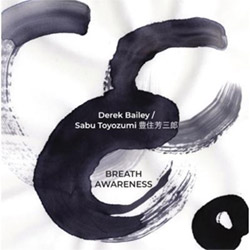
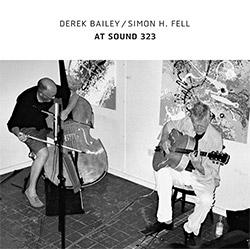
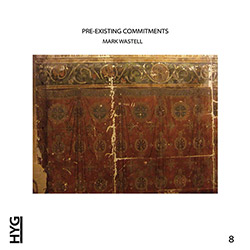
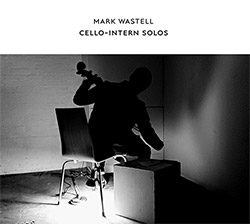
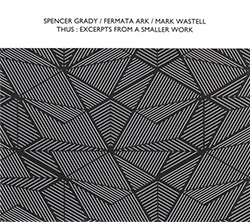

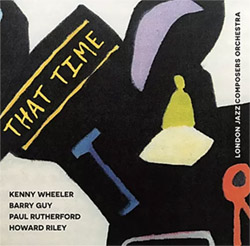

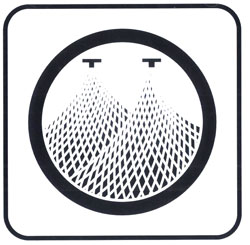
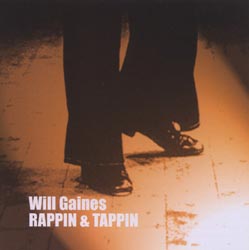
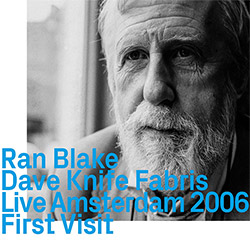
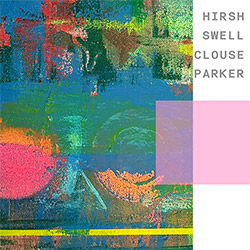
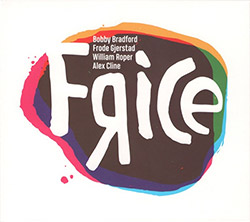

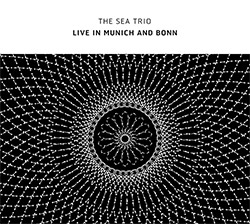

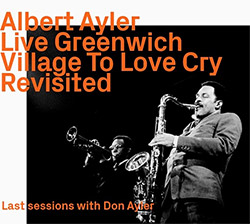

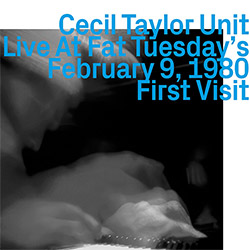
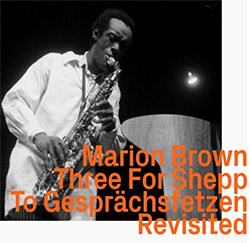
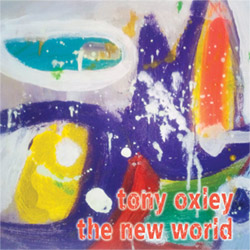

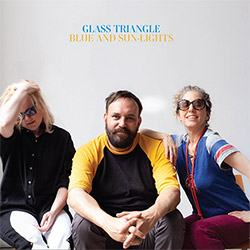


![Guy, Barry / Ken Vandermark: Occasional Poems [2 CDs]](https://www.teuthida.com/productImages/misc4/34849.jpg)
![Novoa / Carter / Mela Trio: Vol.1 [VINYL]](https://www.teuthida.com/productImages/misc4/35236.jpg)


![Elephant9 : Mythical River [VINYL]](https://www.teuthida.com/productImages/misc4/34624.jpg)
![Evans, Peter (Evans / Eldh / Black): Extra [VINYL]](https://www.teuthida.com/productImages/misc4/35279.jpg)

![McPhee, Joe: Straight Up, Without Wings [BOOK]](https://www.teuthida.com/productImages/misc4/35454.jpg)
![Jeck, Philip: rpm [2 CDs]](https://www.teuthida.com/productImages/misc4/35455.jpg)













![Barker / Parker / Irabagon: Bakunawa [VINYL]](https://www.teuthida.com/productImages/misc4/35533.jpg)
![Blaser, Samuel / Marc Ducret / Peter Bruun: Dark Was The Night, Cold Was The Ground [VINYL 10-inch]](https://www.teuthida.com/productImages/misc4/35492.jpg)








![Warren, Kenny (Warren / Hoffman / Ellman): Sweet World [VINYL]](https://www.teuthida.com/productImages/misc4/35451.jpg)

















![DNS: Taking Big Bites Of The Khandas Three Cafes Deep [2 CDs]](https://www.teuthida.com/productImages/misc4/35334.jpg)




![Cleaver, Gerald: The Process [VINYL]](https://www.teuthida.com/productImages/misc4/34966.jpg)



![Alva Noto: HYbr:ID II [VINYL 2 LPs]](https://www.teuthida.com/productImages/misc4/35201.jpg)

![Baron, Derek / Luke Martin: Distinct and Concealed [CASSETTE + DOWNLOAD]](https://www.teuthida.com/productImages/misc4/35079.jpg)

![Lyle, Erica Dawn : Colonial Motels [CASSETTE + DOWNLOAD]](https://www.teuthida.com/productImages/misc4/35080.jpg)









![Sanna, Claudio: Compositori Sardi Contemporanei II [2 CDs]](https://www.teuthida.com/productImages/misc4/35317.jpg)







![Zurria, Manuel: Fame di Vento [3 CDs]](https://www.teuthida.com/productImages/misc4/35167.jpg)

![Granberg, Magnus / Nattens Inbrott / Skogen: Holde Traume, Kehret Wieder! [2 CDs]](https://www.teuthida.com/productImages/misc4/35038.jpg)
![Frey, Jurg: Outermost Melodie [2 CDs]](https://www.teuthida.com/productImages/misc4/35039.jpg)

![Pavone, Jessica: Reverse Bloom [VINYL]](https://www.teuthida.com/productImages/misc4/34895.jpg)




![Modney (Modney / Wooley / Gentile / Roberts / Pluta / Symthe / ...): Ascending Primes [2 CDs]](https://www.teuthida.com/productImages/misc4/34852.jpg)









![Elephant9 with Terje Rypdal: Catching Fire [VINYL 2 LPs]](https://www.teuthida.com/productImages/misc4/35355.jpg)
![Deerlady (Obomsawin, Mali / Magdalena Abrego): Greatest Hits [VINYL]](https://www.teuthida.com/productImages/misc4/34876.jpg)




![Haino, Keiji: Black Blues [2 CDs]](https://www.teuthida.com/productImages/misc4/35109.jpg)



![Surplus 1980: Illusion of Consistency [CD]](https://www.teuthida.com/productImages/misc4/35069.jpg)
![Staiano, Moe: Away Towards the Light [VINYL + DOWNLOAD]](https://www.teuthida.com/productImages/misc4/35037.jpg)



![Caveira (Gomes / Sousa / Abras / Ferrandini): Ficar Vivo [VINYL]](https://www.teuthida.com/productImages/misc4/34643.jpg)
![Gregg, J. J. / David Van Auken: Lunar Prairie [CD w/ DOWNLOAD]](https://www.teuthida.com/productImages/misc4/34611.jpg)

![Coultrain: Mundus [VINYL]](https://www.teuthida.com/productImages/misc4/32439.jpg)
![Mattin: Songbook #6 [VINYL]](https://www.teuthida.com/productImages/misc4/27317.jpg)
![Punkappella: Wake Up [7-inch VINYL]](https://www.teuthida.com/productImages/misc4/17519.jpg)
![Residents, The: WARNING: UNiNC.: Live And Experimental Recordings 1971-1972 [VINYL 2 LPs]](https://www.teuthida.com/productImages/misc4/31521.jpg)
![Coultrain: Phantasmagoria [VINYL]](https://www.teuthida.com/productImages/misc4/30142.jpg)
![Lennon, Sean Ono: Asterisms [VINYL]](https://www.teuthida.com/productImages/misc4/34517.jpg)

![Coley, Byron: Dating Tips for Touring Bands [VINYL]](https://www.teuthida.com/productImages/misc4/17906.jpg)

![Lost Kisses: My Life is Sad & Funny [DVD]](https://www.teuthida.com/productImages/misc4/lostKissesDVD.jpg)